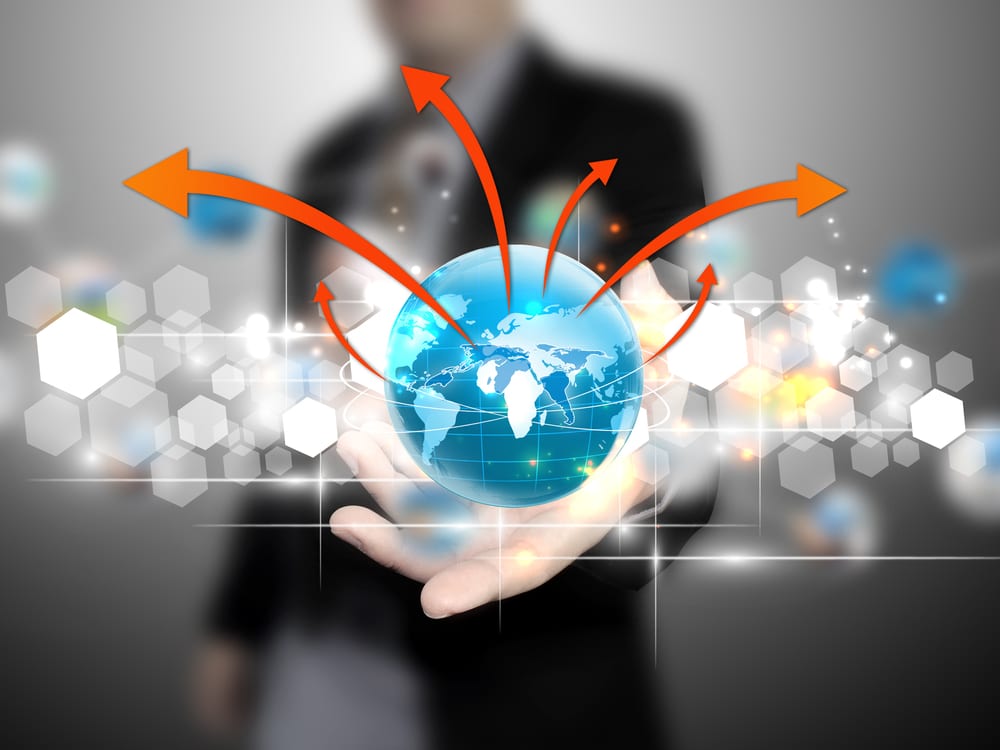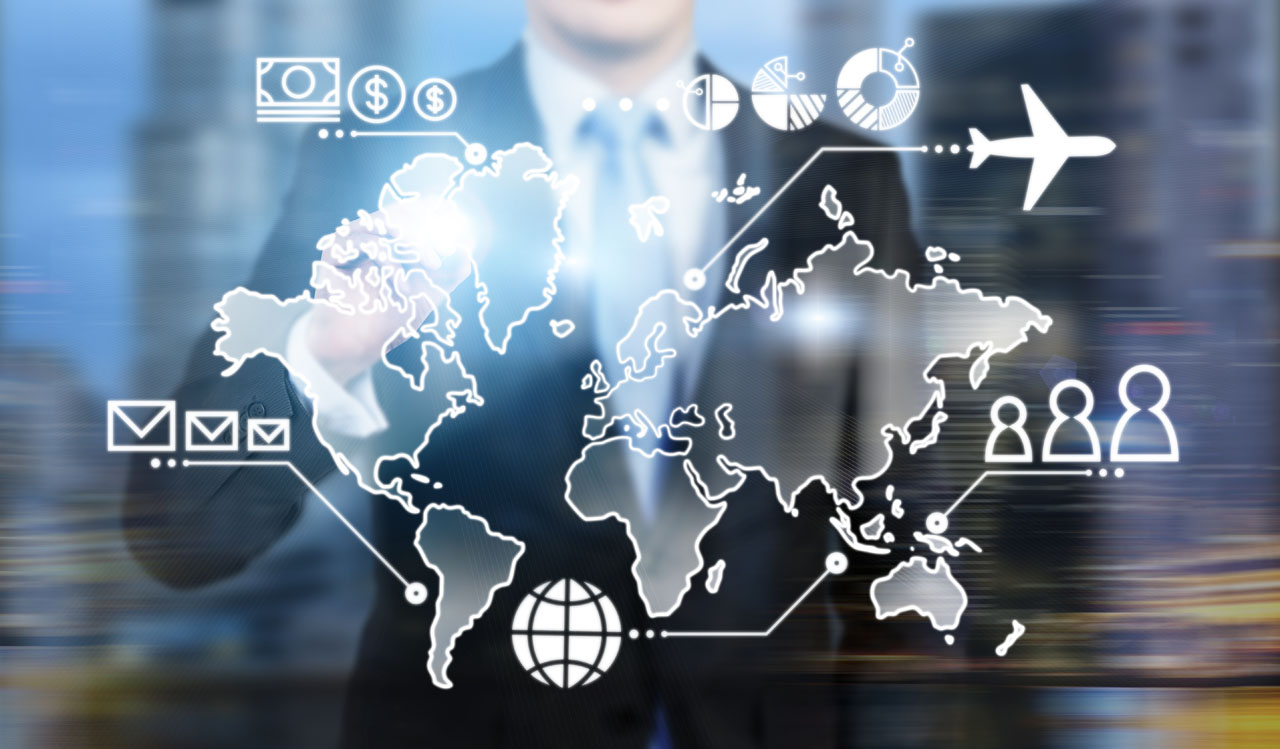Understanding E-International Relations
In the digital age, international relations have expanded beyond traditional diplomatic channels. With the advent of technology and the interconnectedness of the world, e-international relations have become increasingly important. Whether you are a student studying international politics, an aspiring diplomat, or simply curious about global affairs, understanding the dynamics of e-international relations is crucial. In this article, we will explore seven must-know tips for navigating the world of e-international relations effectively. In today's interconnected world, e-international relations have become increasingly crucial in shaping global politics, fostering cooperation, and addressing global challenges. As digital technologies continue to revolutionize the way we communicate and conduct business, it is essential for individuals and organizations involved in international relations to adapt and utilize these tools effectively. Whether you are an aspiring diplomat, a member of an international organization, or simply interested in global affairs.
The Significance of E-International Relations
In today's interconnected world, e-international relations hold immense significance. With the rise of technology and the internet, traditional forms of international relations have evolved, and the digital realm has become a crucial arena for global interactions. E-international relations encompass various aspects, including digital diplomacy, online communication between nations, and the utilization of technology in addressing global challenges. Understanding the significance of e-international relations is essential for navigating the complexities of our modern world.
One of the key reasons why e-international relations are significant is the accessibility they provide. The internet has made information more readily available, allowing individuals from different corners of the globe to connect and engage in discussions on international affairs. Through social media platforms, online forums, and virtual conferences, people can share ideas, exchange perspectives, and foster cross-cultural understanding. This accessibility promotes a more inclusive and diverse approach to global discourse.
Moreover, e-international relations have a profound impact on international politics. The digital age has transformed power dynamics, allowing non-state actors and individuals to have a significant influence on global affairs. Online activism and advocacy campaigns have brought attention to pressing global issues and facilitated grassroots movements. The ease of disseminating information through digital channels has given a voice to marginalized communities and amplified their concerns on a global scale.
International organizations also play a crucial role in e-international relations. Entities such as the United Nations, World Trade Organization, and International Monetary Fund utilize digital platforms to coordinate efforts, address global challenges, and facilitate cooperation among nations. Through online databases, virtual meetings, and collaborative projects, these organizations contribute to the development of policies that promote peace, sustainable development, and economic stability.
Furthermore, e-international relations have implications for global security. The interconnected nature of the digital world brings both opportunities and risks. Cybersecurity threats, such as hacking, data breaches, and cyber warfare, pose significant challenges to international stability. Effective e-international relations require robust cybersecurity measures, information sharing mechanisms, and international cooperation to combat these threats. Collaboration among nations is crucial to develop strategies that protect critical infrastructure, ensure data privacy, and prevent cyberattacks.
Understanding International Politics in the Digital Age
The digital age has reshaped the landscape of international politics. Traditional power dynamics have been altered, as both nation-states and non-state actors leverage the internet to exert influence. The ease of disseminating information and mobilizing support online has democratized the political sphere, creating new avenues for advocacy and activism.
The Role of International Organizations in E-International Relations
International organizations play a vital role in facilitating e-international relations. Entities such as the United Nations, World Trade Organization, and International Monetary Fund employ digital platforms to coordinate policies, negotiate treaties, and address global challenges. These organizations provide a framework for cooperation and collaboration in the digital realm, ensuring the smooth functioning of e-international relations.
Exploring the World of Global Diplomacy Online
Digital diplomacy, also known as e-diplomacy or cyber diplomacy, has become an integral part of global diplomacy. Diplomatic missions and diplomats use various online platforms to engage with foreign governments, promote national interests, and foster international cooperation. Through virtual meetings, social media outreach, and online negotiations, diplomats navigate the complexities of e-international relations to advance their countries' agendas.
Ensuring Global Security in the Digital Era
As the world becomes more interconnected, ensuring global security in the digital era poses unique challenges. Cybersecurity threats, including hacking, data breaches, and online disinformation campaigns, have the potential to disrupt international relations and compromise national security. Collaborative efforts among nations are essential to combat cyber threats and establish robust mechanisms for safeguarding e-international relations.
Building Alliances and Networks in E-International Relations
E-international relations provide opportunities for building alliances and networks that transcend geographical boundaries. Through online forums, webinars, and virtual conferences, individuals and organizations can connect with like-minded counterparts from around the world. These connections facilitate knowledge exchange, collaboration on shared goals, and the formation of networks that enhance global cooperation.
Overcoming Challenges and Ethical Considerations
E-International relations are not without challenges and ethical considerations. Issues such as digital divide, online censorship, and privacy concerns need to be addressed to ensure equitable participation in e-international relations. Striking a balance between security measures and the free flow of information is crucial to maintain a healthy and inclusive digital environment for global discourse.
Embrace Online Diplomacy
Digital platforms have transformed the way diplomats engage with one another and the public. Embrace online diplomacy by actively participating in virtual forums, webinars, and social media discussions. Utilize these platforms to engage with a diverse range of voices, build relationships, and contribute to global conversations on international politics and policy.
Leverage International Organizations
International organizations play a crucial role in shaping global governance and addressing transnational issues. Stay informed about the work of organizations such as the United Nations, the World Trade Organization, or regional bodies like the European Union. Utilize their resources, attend virtual conferences, and engage in their online communities to gain insights and contribute to global decision-making processes.
Cultivate a Global Network
Building a strong network is essential in e-international relations. Connect with professionals, scholars, and experts from around the world through online platforms such as LinkedIn or professional forums. Actively engage in discussions, share your insights, and seek opportunities to collaborate. A diverse and expansive network will not only provide you with valuable knowledge but also open doors for future collaborations and career opportunities.
Stay Informed
Keep yourself updated on global affairs by following reputable news outlets, international relations journals, and specialized websites. Subscribe to newsletters, set up alerts, or use news aggregator applications to receive timely updates on international politics, global security issues, and diplomatic developments. Stay informed about the latest policies, negotiations, and emerging trends to enhance your understanding of the global landscape.
Develop Digital Communication Skills
Effective communication is at the heart of successful international relations. In the digital realm, it is crucial to develop strong digital communication skills. Hone your ability to convey complex ideas succinctly, engage in virtual debates respectfully, and collaborate effectively in online environments. Be mindful of cultural differences in communication styles and adapt your approach accordingly.
Harness Social Media
Social media platforms have become powerful tools for e-international relations. Engage with international organizations, diplomats, and thought leaders through platforms like Twitter, Facebook, or Instagram. Follow key accounts, participate in discussions using relevant hashtags, and share valuable content related to global diplomacy and international relations. However, remember to exercise caution, verify information before sharing, and maintain professionalism in your online interactions.










 English (US) ·
English (US) ·